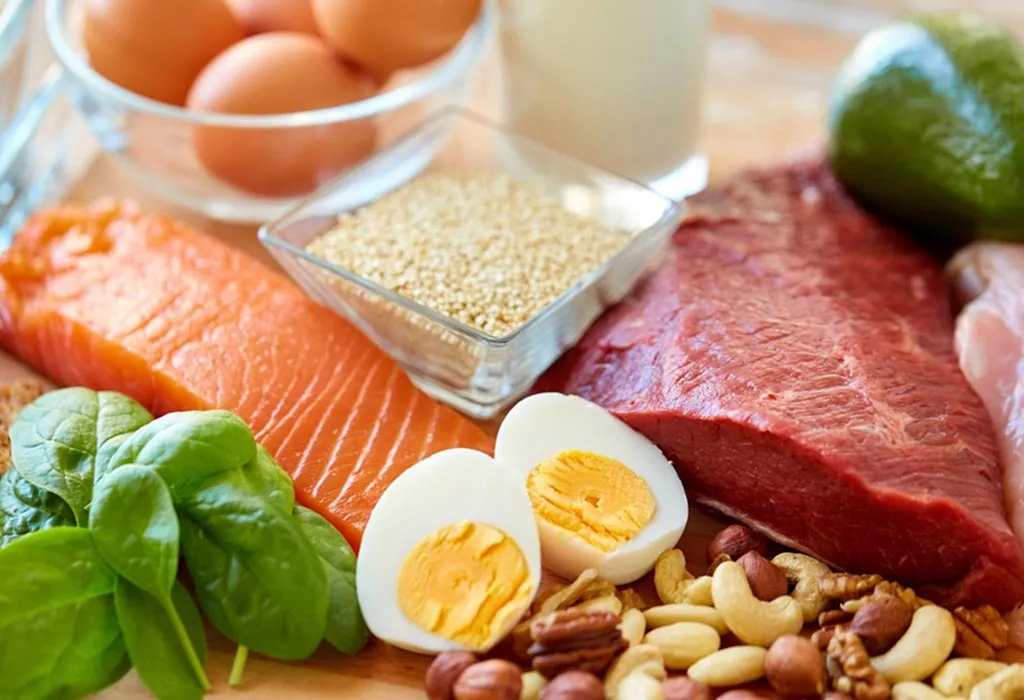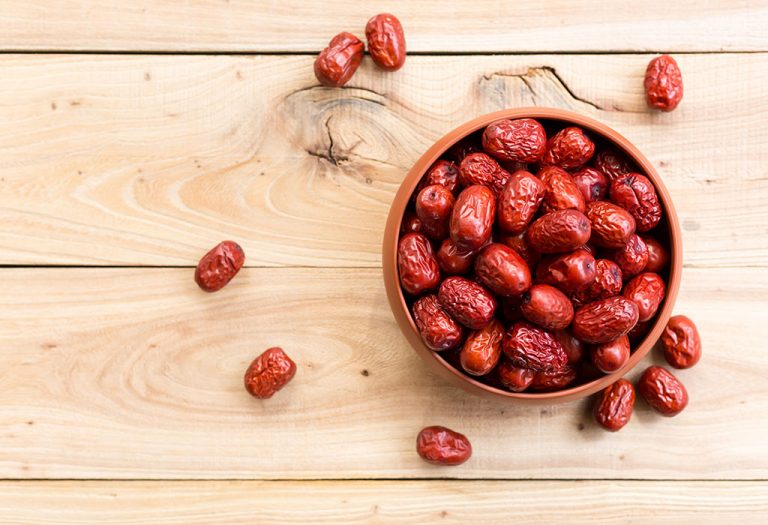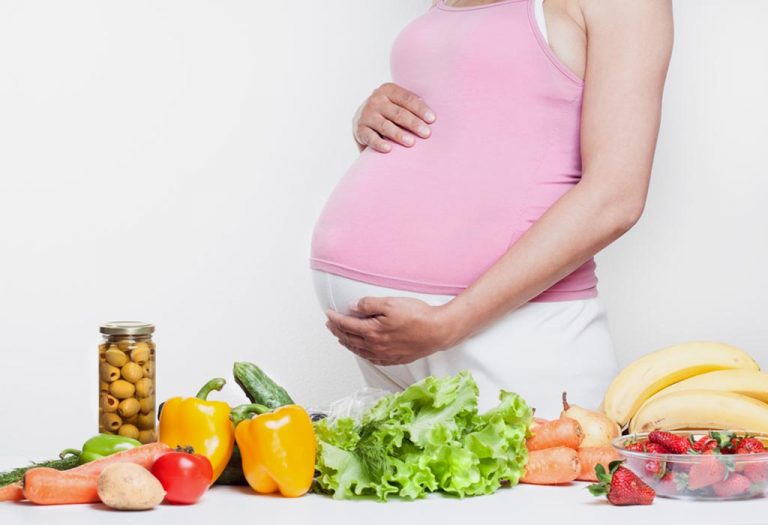Diet for 2nd Month of Pregnancy (5-8 Weeks)

Congratulations! You are in the second month of your pregnancy. Although most women don’t know they are pregnant by this time, those who do are very careful about their diet (just as they should be). During the second month of pregnancy, diet is vital for the well-being of both the mother and the developing baby. Nutrition is of primary importance at this stage as it helps properly develop the foetus. The foetus’s neural tube develops during this time, which then later develops into the brain, spinal cord, and nerves.
A diet rich in vitamins, minerals, proteins and other nutrients is mandatory during this time and throughout the pregnancy. A well-planned 2nd month pregnancy food regimen ensures adequate nutrition, supporting the baby’s development and the mother’s well-being. Read on to find out what foods and nutrients should be a part of your second-month pregnancy diet.
Importance of Right Diet in Second Month of Pregnancy
The second month of pregnancy marks a crucial time for the mother and the developing baby when the baby grows quickly. Consuming a balanced and nutritious diet during 2nd month of pregnancy is essential for providing the necessary nutrients for fetal growth and development. Nutrient-rich foods such as fruits, vegetables, lean proteins, whole grains, and dairy products should be prioritised to ensure the mother’s health and support the baby’s early development (9). Additionally, staying hydrated by drinking plenty of water is essential for supporting the body’s changing needs for both mother and baby. Creating a 2nd-month pregnancy diet chart helps mothers plan nutritious meals for better health during this crucial stage.
Essential Nutrients That Should be a Part of Your Diet in the Second Month of Pregnancy
The foods you eat in the first trimester of your pregnancy will support the healthy development of your baby. Morning sickness and nausea may make you feel uneasy, and you may not want to eat, but you should try to eat healthy food. Try and incorporate the foods that offer you as many nutrients as possible. Choosing the right food for the second month of pregnancy is vital to provide essential nutrients for the baby’s growth and the mother’s health. Mentioned below are some nutrients that are vital for the baby’s development.
- Folic Acid: An integral part of the 7-week pregnancy diet, folic acid serves the purpose of Vitamin B. A daily folic acid supplement of 5 mg is recommended for a woman who is trying to conceive as well as for a pregnant woman in her first trimester. Folic acid helps protect the unborn baby from developing neural tube defects (1). Green leafy vegetables, eggs, fruits, dry fruits, nuts (almonds and walnuts), pulses, and lentils are all rich natural folic acid supplements for a pregnant woman.
- Iron: Another essential nutrient that should be a part of the 5th-week pregnancy diet is iron – it is mandatory for a healthy blood supply (11). At this stage, a pregnant woman needs a strong blood flow in her body as it gives her the strength to deal with morning sickness and fatigue, commonly experienced in the first trimester of pregnancy. In the first week of your second month, eat foods rich in iron, such as fruits and dry fruits, and vegetables, such as spinach, fenugreek, beetroot, chicken and fish.
- Calcium: Calcium is an essential mineral for a pregnant woman, especially in the second month of her pregnancy. About 1000 mg intake of calcium is imperative during pregnancy (6). The body needs calcium as the foetus’s bones ossify at this stage. If the body is not supplied with the required amount of calcium, it will be extracted from existing reserves, thus increasing the chances of osteoporosis. To meet your calcium requirements, you can eat vegetables like turnips, cabbage and leafy vegetables, as they are all excellent sources of calcium.
- Proteins: Protein is essential from the onset of pregnancy. Poultry foods like chicken, eggs, milk, fish, and lentils provide the necessary protein required by the body. An expectant mother needs a minimum of 75 g of protein at this stage. You can eat the protein-rich foods mentioned above. However, be careful about the fish you choose, as certain types of fish (especially those with high mercury content) are not safe for consumption by a pregnant woman and should be avoided during pregnancy.
-
Zinc: Zinc is needed for the metabolism of acid and biological functions. Chicken, fish, vegetables, and beans are all rich sources of zinc. Make sure you include these foods in your diet daily.
-
Fats: Fats are not always bad, but the kind of fat you consume will determine your baby’s healthy growth. There is no doubt that fried foods and foods containing saturated fat are detrimental to your and your baby’s health. However, a healthy intake of good fat in ghee and cream will aid in developing the eyes, brain, placenta, and tissues. Including good fats in your diet in healthy proportions will thus help your baby’s overall growth.
-
Fibre: An essential nutrient that aids digestion and prevents constipation, fibre is highly recommended for pregnant women (4). A fibre-rich diet of vegetables like carrots and cabbage, cereals, and fruits like oranges and bananas will help maintain your blood pressure and prevent constipation during pregnancy. A minimum intake of 28 grams daily is recommended during pregnancy.
Foods to Avoid in the Second Month of Pregnancy
The foods that should be avoided in the second month of pregnancy are mentioned below –
- Meat Spreads: Meat spreads contain listeria, which is harmful during this stage of pregnancy. It affects the baby’s growth and must be avoided entirely (10).
- Soft Cheese: Consumption of soft cheese like brie and camembert is not recommended as they may contain E. Coli bacteria, which may lead to complications in pregnancy. So you must avoid eating soft cheese during pregnancy; you can opt for hard cheese, but do eat it in a limit.
- Raw Eggs: Raw eggs could spread the salmonella bacteria (7) through the body, causing a detrimental effect on the mother’s body and hampering the baby’s normal development. If you want to eat eggs during pregnancy, make sure you eat them in the boiled or poached form. Avoid eating half-boiled or semi-cooked eggs.
- Processed Meat: Processed meat is stored on shelves for a long time and risks carrying harmful bacteria to the baby and you. So avoid including processed meat in your pregnancy diet.
- Raw Fish: Sea-foods like crabs, prawns, shrimp, etc., are high in mercury and are known to cause a miscarriage (5). These foods are not rich in protein and do not provide the body with any necessary nutrition.
- Unpasteurised Milk: Do not drink unpasteurised milk (3). Unpasteurised milk contains microorganisms, pathogens, and salmonella that harm your body and the baby’s growth.
- Alcohol: Alcohol is strictly not permitted as it could lead to several complications. It may affect your health and, most important, the growth of the baby (2). So avoid drinking alcohol throughout your pregnancy.
Consume fresh fruits and vegetables, thoroughly cooked, and protein-rich foods to build muscles and feel energetic. Consume more starchy food than sugary foods to up your calorie intake.
Dietary Tips to Follow in the Second Month of Pregnancy
Here are some dietary tips you should follow during the second month of your pregnancy.
- You will get the maximum benefits from the food you eat if you eat it at the right time and in the proper proportions. Try to have a healthy breakfast comprising fruits, vegetables, cereals, and dairy products like milk. Eating a slightly rich diet in the morning will help as it will give you more time to digest the food.
- Your diet in the afternoon should comprise salads, eggs, etc. Having salad during lunch will help you stay fresh and energetic. You could also include boiled eggs in your lunch. A meal comprising chapatis, cooked sabji, rice and dal will be nourishing at this stage.
- You will likely experience morning sickness in the first trimester of your pregnancy, so keep your dinners light. Eating light food will keep your stomach full and happy and prevent heartburn. If you want a nourishing yet light meal, eat boiled and cooked vegetables with less spice and salads for dinner.
- If you feel peckish, eat small portions of healthy snacks like upma. Avoid fried food and be guided by your appetite. Do not binge eat, as many would insist that you need to eat for two. You don’t need to eat for two – you need to eat as per your appetite (8). So eat as per your body’s requirements and ensure it is healthy enough for you and your baby!
FAQs
1. Should I be taking any supplements during the second month of pregnancy?
Taking a prenatal vitamin containing folic acid, iron, calcium, and other essential nutrients is recommended. However, consult your doctor before starting any supplements to ensure they’re appropriate for your and your baby’s needs.
2. How much weight should I expect to gain during the second month of pregnancy, and how does it affect my diet?
Weight gain during the second month of pregnancy varies but typically ranges from 1 to 4 pounds. Focus on eating nutrient-dense foods to support your baby’s growth and development while managing weight gain. Your doctor can offer personalised guidance based on your pre-pregnancy weight and overall health.
3. How can I ensure I’m getting enough nutrients if I’m experiencing food aversions or cravings during the second month of pregnancy?
If you’re experiencing food aversions or cravings, try to find alternative foods that provide similar nutrients (12). For example, if you’re averse to meat, consider incorporating plant-based protein sources like beans or tofu. Listening to your body’s cues is essential while still striving to maintain a balanced diet.
Remember, your nutrition depends on your chosen foods, so choose wisely. Ensure you limit your sugary and fried foods and foods high in calories, as they provide no nutrition to your baby. Eat healthy and stay healthy during pregnancy; your baby will be just fine!
References/Resources:
1. Pregnancy and diet; Better Health Channel; https://www.betterhealth.vic.gov.au/health/healthyliving/pregnancy-and-diet#folic-acid-folate-and-pregnancy
2. Eat Healthy During Pregnancy: Quick Tips; Office of Disease Prevention and Health Promotion; https://health.gov/myhealthfinder/pregnancy/nutrition-and-physical-activity/eat-healthy-during-pregnancy-quick-tips
3. Food Safety During Pregnancy; Nemours Children’s Health; https://kidshealth.org/en/parents/foods-pregnancy.html
4. Pregnant or Breastfeeding? Nutrients You Need; Nemours Children’s Health; https://kidshealth.org/en/parents/moms-nutrients.html
5. Eating During Pregnancy; Nemours Children’s Health; https://kidshealth.org/en/parents/eating-pregnancy.html
6. What to eat when pregnant; UNICEF Parenting; https://www.unicef.org/parenting/what-to-eat-when-pregnant
7. Foods to avoid in pregnancy; Tommy’s; https://tommys.prod.acquia-sites.com/pregnancy-information/im-pregnant/nutrition-in-pregnancy/foods-avoid-pregnancy
8. How much should I eat during pregnancy?; Tommy’s; https://www.tommys.org/pregnancy-information/im-pregnant/nutrition-in-pregnancy/how-much-extra-should-i-eat-pregnancy
9. How to eat well in pregnancy; Tommy’s; https://www.tommys.org/pregnancy-information/im-pregnant/nutrition-in-pregnancy/balanced-diet-pregnancy
10. Nutrition During Pregnancy; Johns Hopkins Medicine; https://www.hopkinsmedicine.org/health/wellness-and-prevention/nutrition-during-pregnancy
11. Pregnancy Nutrition; American Pregnancy Association; https://americanpregnancy.org/healthy-pregnancy/pregnancy-health-wellness/pregnancy-nutrition/
12. 5 Snack Foods to Eat While Pregnant; Johns Hopkins Medicine; https://www.hopkinsmedicine.org/health/wellness-and-prevention/5-snack-foods-to-eat-while-pregnant
Also Read:
First Trimester Diet
Fourth Month Pregnancy Diet
Pregnancy Diet for 3rd Month
Was This Article Helpful?
Parenting is a huge responsibility, for you as a caregiver, but also for us as a parenting content platform. We understand that and take our responsibility of creating credible content seriously. FirstCry Parenting articles are written and published only after extensive research using factually sound references to deliver quality content that is accurate, validated by experts, and completely reliable. To understand how we go about creating content that is credible, read our editorial policy here.

































